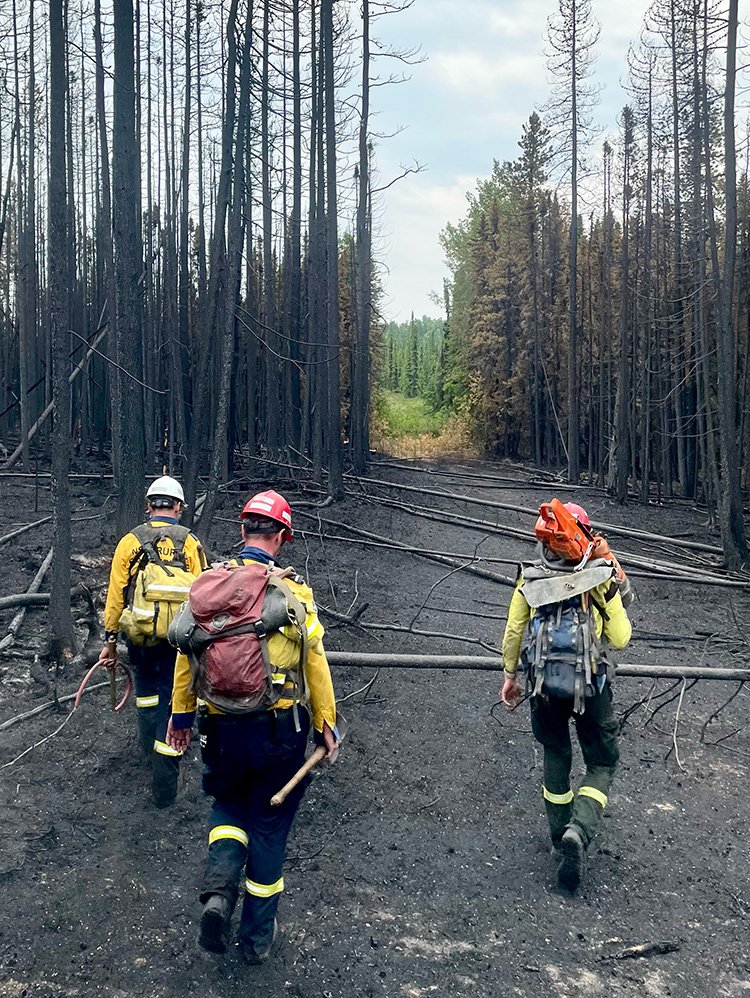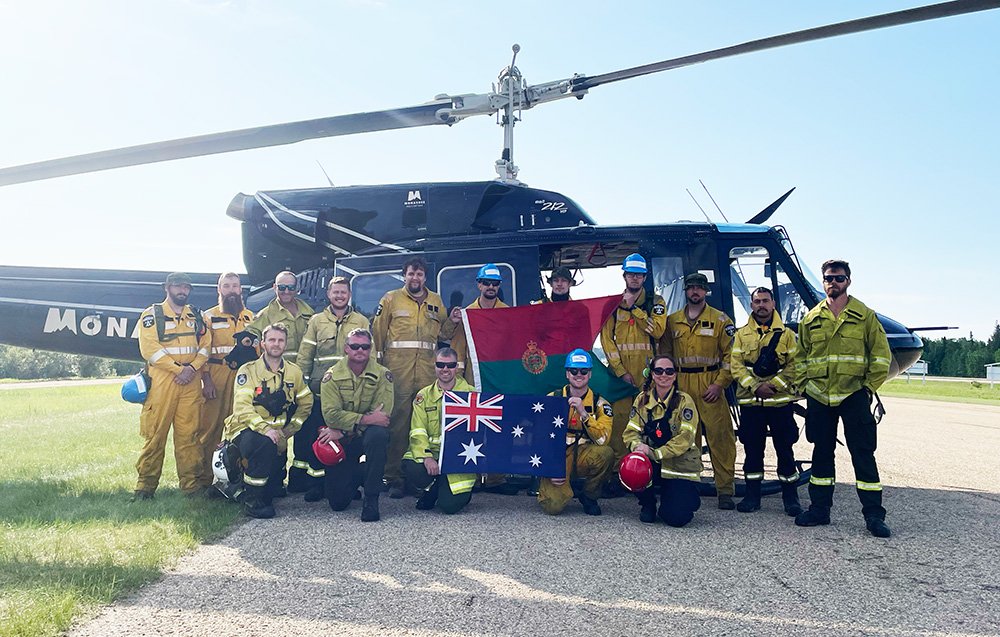Australian Wildland Firefighters for International Deployment
IWFB (International Wildland Firefighters Brigade) is a group of highly skilled Australian Arduous Firefighters available for international deployments to assist governments with wildland fires. From initial attack firefighting to clean-up operations, when Government agencies need assistance to bolster their teams, we are here to help. We have worked in multiple overseas deployments in Canada, New Zealand, USA and more.
What can we provide your government or organisation?
With the fast increase of wildland fires on a global scale, governments need more firefighters to combat these fires, which can take time to train and reach a high level of skills and experience.
We can work alongside your existing emergency services to bolster their numbers and capabilities. We can provide multiple teams of Arduous Firefighters to assist your government with wildland fires’ current or future impact.
Our website is currently in development, but we are available and ready to hear from you regarding any deployment operations.
What is a Wildland Firefighter?
A Wildland firefighter is a trained professional specialising in combating wildfires in outdoor, natural, and wildland areas. These fires can occur in forests, grasslands, shrublands, and other remote or rugged terrains. Wildland firefighters work to suppress, control, and manage wildfires to protect lives, property, and natural resources.
Their tasks and responsibilities can vary depending on the size and complexity of the fire, but they typically involve the following:
Wildfire Suppression
Their primary role is to suppress and control wildfires that occur in outdoor, natural, and wildland areas. Wildfires can spread rapidly, posing significant threats to communities, wildlife, natural resources, and infrastructure. Prompt and effective firefighting efforts are necessary to prevent fires from growing out of control and causing extensive damage.
Mutual Aid and Cooperation
Wildland firefighting often involves mutual aid agreements between different firefighting agencies and jurisdictions. Wildland firefighters may be deployed to assist in suppressing large wildfires in other regions, emphasising the importance of collaboration in emergency response.
Conservation of Natural Resources
Many wildland areas are ecologically valuable and support diverse plant and animal species. Wildland firefighters work to preserve these natural resources, preventing further degradation caused by uncontrolled wildfires.
Prevention of Fire Escalation
Early and decisive action in fire suppression can prevent small fires from escalating into larger, more destructive wildfires. This proactive approach can save resources and lives.
Protection of Lives and Property
Wildfires can endanger the lives of residents and visitors in affected areas. By containing wildfires, wildland firefighters help protect human lives and properties, including homes, businesses, and critical infrastructure.
Overall, wildland firefighters play a crucial role in safeguarding communities, ecosystems, and valuable resources from the devastating impacts of wildfires. Their dedication, skills, and efforts are essential in managing and mitigating the effects of these natural disasters.
How it works!
We try to make contracting our firefighters as easy as possible to get them on the fire line sooner.
When we establish Wildland firefighting contracts with various entities, such as government agencies, private companies, non-profit organisations, or tribal organisations. These contracts outline the terms, conditions, and responsibilities of firefighting services during wildfire incidents. The specifics of the contracts can vary depending on the agency and the region, but the following are common elements found in many wildland firefighting contracts:
Scope of Services
The contract defines the services to be provided by our firefighters. This may include wildfire suppression, initial attack, fireline construction, mop-up operations, aerial firefighting support, and other related tasks.
Duration and Availability
The contract specifies when the firefighters will be available for deployment. It may cover a specific fire season or be on-call throughout the year.
Service Area
The contract outlines the geographic areas firefighters must provide services to. This could be a specific region, state, or multiple states, depending on the capabilities of our team and your requirements.
Equipment and Personnel
The contract may detail the type and quantity of firefighting equipment and personnel available for deployment. This could include ground crews, support crews, and other resources.
Mobilisation and Demobilisation
The contract outlines the procedures for mobilising firefighting resources to the incident location and the demobilisation process once the operation is complete.
Terms and Termination
The contract includes terms and conditions governing the agreement, such as insurance requirements, liability provisions, and conditions for termination.
Coordination and Communication
The contract may include provisions for coordinating with other firefighting agencies, sharing information, and establishing communication protocols during incidents.
Incident Specifics
For each wildfire incident, a separate “Task Order” may be issued under the contract. The Task Order provides detailed information about the typical fire, incident objectives, and the resources required for that particular incident
Compensation
The contract defines the compensation the firefighters and group will receive for its services. Payment may be based on various factors, such as the number of firefighting personnel deployed, equipment used, and the duration of the firefighting operation.


